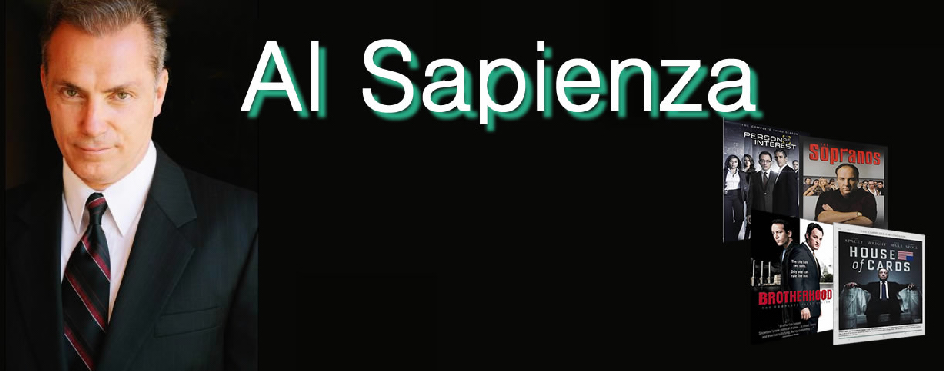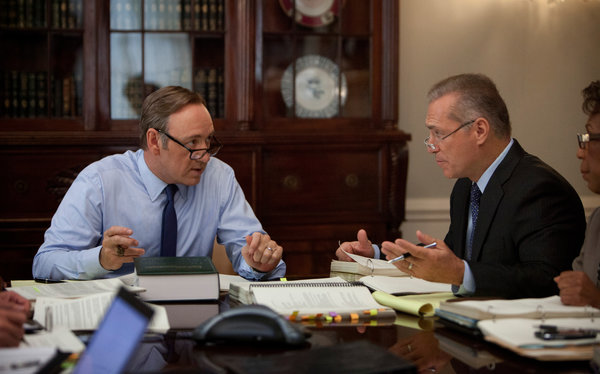 |
|||||||||||||||||||
From the New York Times Release of 13 Episodes Redefines Spoiler AlertBy BRIAN STELTERPublished: February 5, 2013
This article about “House of Cards” contains no spoilers. That notice seems necessary, since Netflix’s all-at-once release of the Kevin Spacey political thriller series last Friday has raised a thicket of questions. Chief among them: how can viewers who binged on all 13 episodes in one sitting talk about the show without ruining the season for others who might wait weeks or months to watch it? Netflix’s release strategy went against the grain of “social TV,” the catchall term for viewers who virtually watch TV together by chatting along in real time on Twitter, Facebook and other Web sites. Jenni Konner, one of the showrunners for HBO’s “Girls,” made the point this way on Twitter on Sunday night: “I don’t know how to talk to people who aren’t at least halfway through ‘House of Cards.’ ” On Tuesday she still had one episode left. Dave Winer, the Internet pioneer who helped give birth to blogging in the late 1990s, restarted his Netflix subscription so he could watch the series, and immediately noticed the drawback to the all-at-once approach. “I don’t want spoilers, and I don’t want to be a spoiler,” he wrote in a blog post on Sunday. “We need to invent new communication systems, where only people who have made it through Episode X can discuss with others who have made it exactly that far.” These are the conundrums that accompany the decades-long shift from “appointment viewing” to the on-demand kind — and they’re heightened by Netflix, which is plowing new ground by trying to make network-quality programming exclusively for the Web. Netflix says it won’t release any data about how many of its 27 million streaming subscribers in this country watch “House of Cards,” much to the exasperation of broadcast and cable television executives, who suspect that the show would be relatively low-rated if Nielsen were actually tracking it. But Nielsen is not, partly because Netflix has no advertising. The industry will know if the show is a success only if Netflix orders more episodes. For now, Netflix is committed to 26 episodes; filming will begin on the second half in the spring. The company declined interview requests about the response to “House of Cards” this week, but a spokesman said in a statement, “We’re happy with the great reception the show has had in the media, social media and the reviews on Netflix.com.” The commotion about online release strategies (and spoiler avoidance) isn’t going away. Netflix has more original shows in production — a new season of “Arrested Development” is due in May, for example — and competitors like Hulu do too. Amazon is financing half a dozen comedy pilots with actors like Jeffrey Tambor and John Goodman. A production company called Prospect Park is bringing back the soap operas “One Life to Live” and “All My Children” online, to be shown on Hulu and elsewhere. While appointment viewing still accounts for a vast majority of Americans’ TV time, these shows will exist as a lab experiment of sorts, allowing companies to try — and to study — new viewing behaviors. “Over the next several years, speculation will give way to data,” the “House of Cards” showrunner, Beau Willimon, wrote on Twitter. Mr. Willimon was active on Twitter all weekend, answering questions and asking binge viewers to prove that they were watching. To one viewer who lost sleep watching all the episodes in a row, he wrote, “Anyone who gets fired for missing work due to ‘House of Cards’... I will personally pay for their Netflix subscription.” His involvement might be one way to create “social TV” chatter. Networks like HBO and ABC say online conversations about once-a-week shows can double as free marketing, sometimes bolstering ratings. But Netflix has other ways to market, like its home page, which can be a huge billboard for shows. “The huge benefit is that we don’t have to advertise ‘8 p.m. on a Thursday night, tune in,’ ” Netflix’s chief executive, Reed Hastings, told investors last week. “We get to let people know about the show, and they can watch it any time, at their leisure.” The investors didn’t ask Mr. Hastings about the social conundrum the show’s release created. On Friday “House of Cards” would have ranked No. 6 on the daily chart of most-talked-about TV shows assembled by Trendrr, a company that specializes in such data. By Sunday, though, Trendrr said, it would have fallen out of the Top 10. (The show didn’t appear on the charts because Trendrr tracks only broadcast and cable telecasts.) By Monday, reviews — largely positive — of the entire first season were trickling in. Some writers said they loved the season but hated the glut. “Art, after all, is meant to be contemplated; junk food is meant to be consumed quickly, without thought or sentiment,” wrote Jace Lacob in The Daily Beast. “Is ‘House of Cards’ doing itself a disservice by urging viewers to watch so quickly? Should we be approaching television as one would a bag of potato chips? Is there something to be said for waiting patiently until the next meal?” There is, but Netflix is arguing that viewers should have the option to watch as they wish, one at a time or all at once. Over the weekend some “House of Cards” viewers started their Twitter and Facebook posts with the episode number, as in, “I’m on No. 5.” Some said they would watch two or three each weekend until the season finale, and avoid spoilers in the meantime. By Tuesday, the Internet was lighting up with “safe spaces” for faster viewers to converse about all 13 episodes. “If You’ve Seen All of House of Cards, Let’s Discuss,” read a blog post on New York magazine’s entertainment site Vulture. That’s a long way from Mr. Winer’s proposal for a new communication system, but it’s a start.
|
|||||||||||||||||||
Home | About | Filmography | Theater | Comedy | Gallery | Media | IMDB | Contact This is the Official web site of Al Sapienza.
|
|||||||||||||||||||
